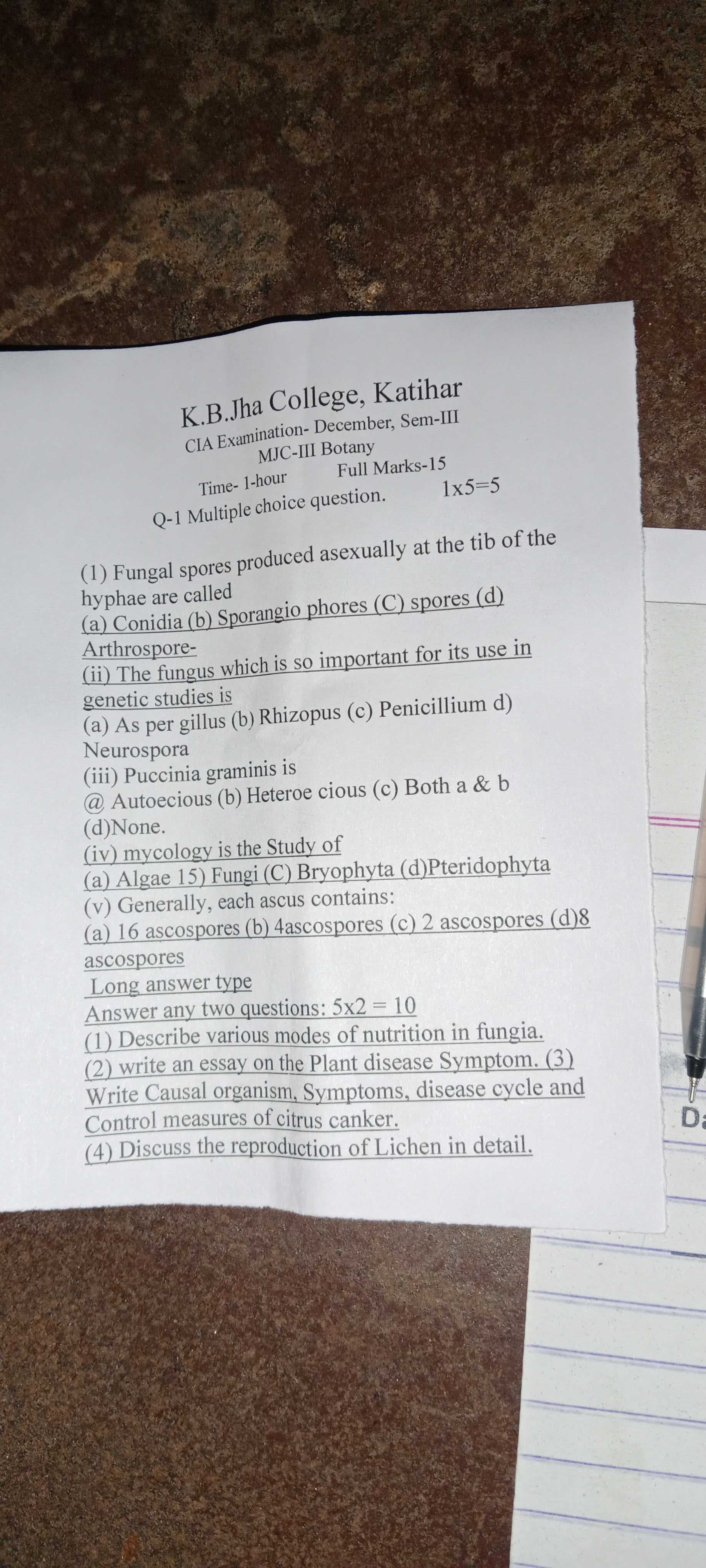1. Fungal spores produced asexually at the tip of the hyphae are called? 2. The fungus which is so important for its use in genetic studies is? 3. Puccinia graminis is? 4. Mycology... 1. Fungal spores produced asexually at the tip of the hyphae are called? 2. The fungus which is so important for its use in genetic studies is? 3. Puccinia graminis is? 4. Mycology is the study of? 5. Generally, each ascus contains?

Understand the Problem
The question is asking about the classification and various aspects of fungal biology, including asexual reproduction, important species for genetic studies, and details on mycology and ascospores, as well as a request for long-form answers discussing nutrition modes, plant diseases, and lichen reproduction.
Answer
1) Conidia, 2) Neurospora, 3) Heteroecious, 4) Fungi, 5) 8 ascospores
- Conidia, 2) Neurospora, 3) Heteroecious, 4) Fungi, 5) 8 ascospores.
Answer for screen readers
- Conidia, 2) Neurospora, 3) Heteroecious, 4) Fungi, 5) 8 ascospores.
More Information
Conidia are asexual spores formed on hyphal tips; Neurospora is used extensively in genetics; Puccinia graminis requires two hosts; mycology focuses on fungi; and an ascus typically contains 8 ascospores.
Tips
Ensure to differentiate between types of spores and their methods of reproduction in fungi.
Sources
- Fungus Spore - an overview | ScienceDirect Topics - sciencedirect.com
- Fungi and Grapevine Mycobiota - SpringerLink - link.springer.com
AI-generated content may contain errors. Please verify critical information